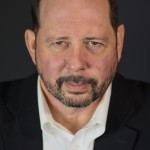Remember when WorldNetDaily editor Joseph Farah pushed the myth on WND’s 20th anniversary that his website is a “check and balance on government power,” complaining about thet “cozy, symbiotic and unhealthy relationship developing between the corporate press and state power” and vowing that “WND would never fall prey or be seduced by that temptation”? That, of course, was stated just a few days after WND’s Chelsea Schilling penned a gushy, sycophantic profile of White House press secretary Sean Spicer.
The sycophancy continues in a May 12 article, in which Garth Kant actually cheers Spicer’s pathetic stonewalling on the issue of whether President Trump has “tapes” of his conversations with ousted FBI director James Comey, which the president himself suggested he did. Kant just loved how Spicer “would find a way to burst that bubble and deflate all those high expectations with just a few choice words:
The White House press briefing room was more packed than ever, with wall-to-wall reporters and camera operators.
Friday promised to be an explosive culmination of a combustible week that included the firing of FBI Director James Comey.
And there was a buzz of anticipation rippling through the air after President Trump had begun the day with a flurry of tweets that seemed to promise reporters the opportunity to pursue the prospect of a scandal of Nixonian proportions: secret tape recordings in the White House.
However, White House press secretary Sean Spicer would find a way to burst that bubble and deflate all those high expectations with just a few choice words.
[…]With all this ammunition, the media was ready to pounce.
And they did, with the very first question of the briefing from Reuters’ Jeff Mason, who dutifully asked, “Did President Trump record his conversations with former FBI Director Comey?”
“The President has nothing further to add on that,” simply replied Spicer.
It was as though a lead balloon had dropped. The media suddenly realized there would be no feasting on that red meat of a tweet.
Mason gamely pressed on, asking: “Why did he say that? Why did he tweet that? What should we interpret from that?”
“As I mentioned,” calmly repeated Spicer, “the President has nothing further to add on that.”
“Are there recording devices in the Oval Office or in the residence?” the reporter persisted.
Which evoked the coup de grâce from the press secretary, “As I’ve said for the third time, there is nothing further to add on that.”
Undeterred, Mason made one last stab, asking, “Does he think it’s appropriate to threaten someone like Mr. Comey not to speak?”
To which Spicer responded, “I don’t think – that’s not a threat. He simply stated a fact. The tweet speaks for itself. I’m moving on.”
And that pretty much closed the book on that topic for the day, as it began to become clear the media had been effectively trolled by Trump.
The president hadn’t said Comey had been recorded. He had said Comey should hope he had not been recorded.
That, indeed, left a lot of unanswered questions. Questions the president obviously hoped Comey, and any potential leakers, should consider.
But not questions the White House would be answering.
We doubt that Kant and his boss, Farah, would be quite so praiseworthy of the White House press secretary if he had performed a similar feat of stonewalling for a Democratic president.
Your cozy, symbiotic and unhealthy relationship between a media outlet and state power in one story, folks.
